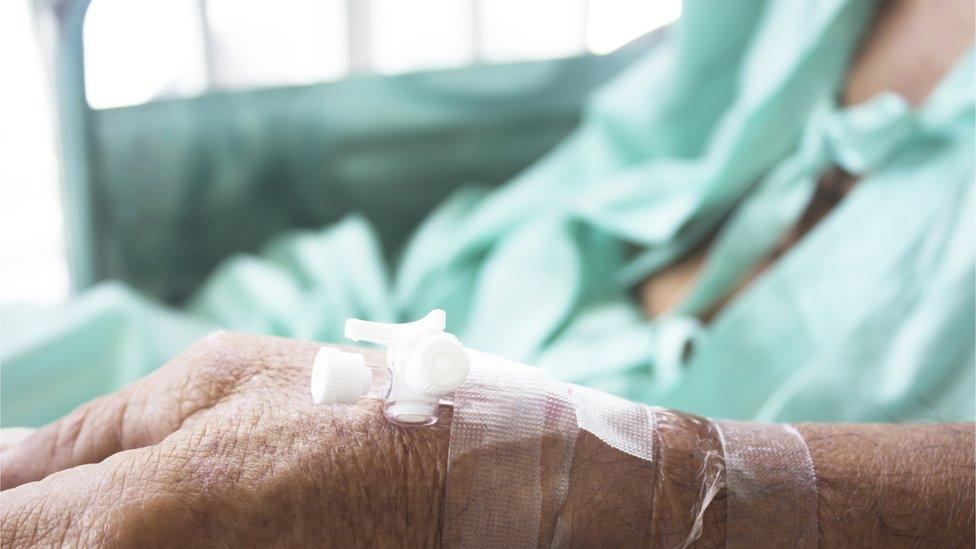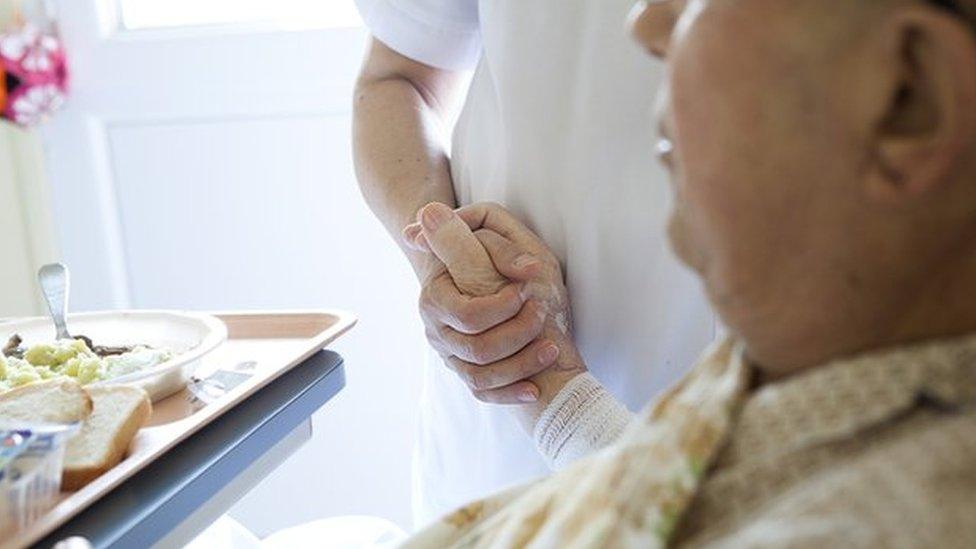Quality of Death Index - something to celebrate?
- Published

Celebration is probably the wrong word even though the UK tops an important international league table for one aspect of health care.
Taking comfort from the fact that, according to the Economist Intelligence Unit, the UK leads the world for care of people in the final weeks of their life is perhaps a more appropriate reaction.
The UK topped the table when the EIU last carried out this exercise in 2010. But the number of countries included has been doubled to 80 in this latest survey, commissioned by the Lien Foundation of Singapore. So for the UK to again lead the pack, including all other wealthy nations, is significant.
In essence, the UK scores so highly for the care of patients nearing the end of their life because the NHS is such a well-integrated service. Health professionals, ranging from hospital doctors to GPs and community nurses, generally work together effectively to ensure patients receive the end of life care they might expect. This includes pain management through palliative care. This is not the case in many international healthcare systems.

The report praises the UK for having a comprehensive strategy with the NHS working alongside the hospice movement and charities such as Marie Curie and Macmillan. Ensuring that people get to live out their final days in a place of their choice is an area where there has been progress in recent years.
Its interesting that both the report authors and other experts in the field have gone out of their way to stress there is still plenty of scope to do better. The Health Ombudsman in England recently highlighted cases where people were badly let down and experienced death without dignity. Future demand, the report says, is likely to be higher as people live longer and the burden of cancer, dementia and diabetes increases.
While noting the report's findings are "very encouraging", the Health Minister Ben Gummer said the Government was determined to go even further to ensure patients and families were involved in decisions about care.
The crossbench peer Baroness Finlay has introduced a Palliative Care Bill which will be debated in Parliament this month. The aim she says is to guarantee all patients equal access to services around the clock and regardless of geography. But she acknowledges that, helped by each of the UK's health administrations having a strategy, there has been improvement.
"We are vastly better than we were - patients are rating good services very highly though the problem is gaps in provision at ground level," she says.
The hospice movement, she told the Today programme is "setting a gold standard and leading the world".
Its important to give praise where praise is due. In this sensitive area, its easy to assume from anecdotal reports that the NHS could do a lot better. So to score more highly than Australia and New Zealand, as well as Germany, France and the US is highly commendable. Richer nations inevitably lead the pack with the Philippines, Bangladesh and Iraq propping up the table. Affordability of care, with a taxpayer funded health service, is predictably a lot more bearable for British patients than in other economies.
The NHS, the hospices and a range of dedicated professionals should be given a pat on the back. Specialist training and expertise is highlighted by the report, along with successful national policies. We can be reassured that the quality of death in the UK is as high as we might feel it ought to be in a civilised society.
- Published6 October 2015

- Published6 October 2015
